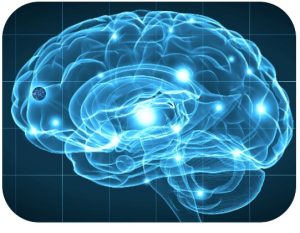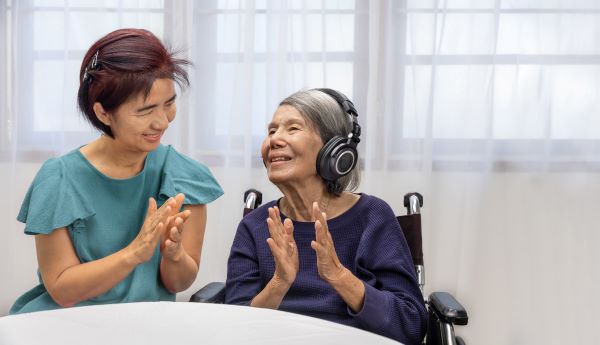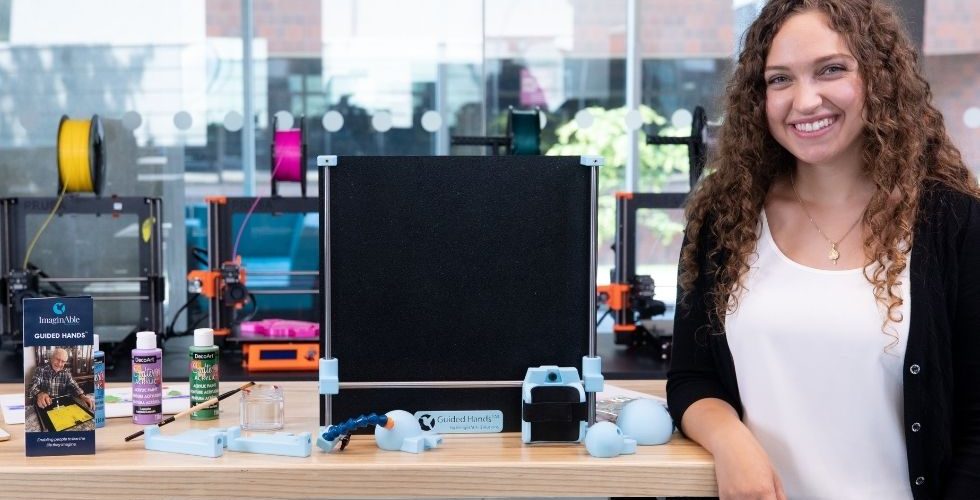Above: Lianna Genovese is the founder of ImaginAble Solutions and is included in the Forbes’ 30 Under 30 Local list.
Nineteen Canadian agetech companies received up to $400,000 each to support their early-stage innovations aimed at improving the quality of life for older adults, people living with dementia, and caregivers. Two of those companies are included on Forbes’ 30 Under 30 Local (Toronto) edition.
The funding was made through CABHI’s Mentorship, Capital, and Continuation (MC2) Program in partnership with National Bank, which supports early-stage companies in growing and scaling agetech solutions.
“Agetech companies face early-stage funding gaps. CABHI’s MC2 addresses this, in collaboration with our partners, by awarding financial support in addition to a series of acceleration services to support their growth and sustainability,” says James Mayer, Senior Manager, Investments & Venture Services at CABHI. “It’s a first-of-its-kind program, now in its fifth round, which has directed $13.7 million to companies which have gone on to secure millions more in follow-on funding.”
The most recently funded MC2 companies are:
Careteam Technologies, Vancouver, British Columbia. Developer of a digital health collaboration platform intended to help patients, families, and health care providers to act effectively as a team. Careteam enables seniors with dementia and cognitive difficulties to age at home by allowing everyone to work together on the same page, easing the burden of care on families, reducing readmissions and duplications, and improving the health and lives of the elderly.
Cerebra Health, Winnipeg, Manitoba. Provider of diagnostic technology services intended to assess sleep and the diagnosis of sleep disorders. The number of Canadians living with dementia is projected to double by 2031. Research has shown links between sleep disturbances and a 1.2 times greater risk for dementia and Alzheimer’s disease, potentially related to reduced clearance of abnormal proteins in the brain. The Cerebra Sleep System enables quick identification of persons with sleep disorders so they can get the treatment they need, enjoy better sleep quality, and potentially slow the progression of Alzheimer’s.
Cosm Medical, Toronto, Ontario. Developer of custom-made gynecological prosthetics designed to offer personalized therapies for pelvic floor disorders. Pelvic floor disorders such as Incontinence and pelvic organ prolapse (POP) are a highly prevalent dysfunction of the pelvic floor affecting half of all women in their lifetime and are one of the leading contributors to older women losing their independence and transitioning into institutional care (e.g., long-term care).
Cosm is tackling this issue with its unique prosthetics, which integrate an ultrasound-based measurement system, data science, and 3D printing to develop a platform for a custom gynecological prosthetic, allowing women to obtain a personalized approach to pelvic care.
Darmiyan, Canada and US. Developer of a brain imaging technology designed to offer early

Image courtesy of Darmiyan
detection, visualization, and quantification of neurodegenerative disorders such as mild cognitive impairment, and Alzheimer’s dementia. The brain imaging technology being developed by Darmiyan could directly impact the current standard of care for patients with mild cognitive impairment, dementia & Alzheimer’s by detecting diseases up to fifteen years before symptoms.
Moneta Health, (formerly Elovee), Canada and US. Operator of a healthcare platform intended to provide expert care for patients living with dementia. Moneta Health is on a mission to help older adults think, feel, and function at their best. Moneta Health is specifically targeting patient populations living with mild cognitive impairment, dementia & Alzheimer’s with their cognitive rehabilitation therapy.
FluidAI, Kitchener, Ontario. Developer of smart catheter system designed to create a proactive approach to the way post-operative care is delivered. In gastrointestinal surgery, current postoperative patient monitoring relies on expensive and reactive testing only after patients start experiencing symptoms of surgical complications. This postoperative burden of surgery is even higher in patients with dementia or mild cognitive impairment, with studies showing a significantly higher postoperative complication rate.
The company’s platform addresses this issue by utilizing data within the body to help in the detection of postoperative complications at their onset, enabling healthcare providers to get critical health data ahead of time.
Foqus Technologies, Toronto, Ontario. Developer of a medical imaging system designed to provide higher-resolution medical images by using magnetic resonance technology.
Early detection of Parkinson’s disease and dementia can significantly help with controlling and treating them. MRI provides one of the most powerful tools for the early detection of these diseases. In the U.S.A and Canada, around 30%-40% of MRIs are used for older adults (> 65+) care. Unfortunately, access to MRI is extremely limited and slow (90% of the world does not have access to MRI, and the average wait time is ~4 months in Canada). Foqus software has the potential to improve these issues by reducing waiting times and facilitating the early detection of Parkinson’s disease and dementia.
ImaginAble Solutions, Hamilton Ontario Developer of an assistive device to improve the quality of life for people living with a medical condition or injury affecting their motor movement. Guided Hands, ImaginAble’s award-winning assistive device promotes aging in place and better cognitive & mental health in older adults. The device supports occupational therapists in promoting cognitive function, range of motion, and sensory motor skills during rehabilitation and recreational therapy. By maintaining or re-training hand mobility, individuals can age in place with greater ease and independence in their daily activities. In August 2023, the founder Lianna Genovese was added to the Forbes’ 30 Under 30 Local list.
LUCID, Toronto, Ontario. Provider of personalized and validated therapeutic music experiences  intended to improve outcomes in behavioral and neuropsychiatric health.
intended to improve outcomes in behavioral and neuropsychiatric health.
LUC-101, is LUCID’s digital therapeutic development for Alzheimer’s disease is built with the primary aim to significantly reduce anxiety and agitation, and secondarily improve acute cognition and overall mood for patients. Furthermore, by lowering anxiety and agitation in older adults, LUCID also anticipate that their solution will facilitate aging in place and provide support to caregivers.
Mesosil, Toronto, Ontario. Mesosil is the developer of antimicrobial systems designed for dental practitioners. Their technology offers antimicrobial capabilities to dental material manufacturers for the treatment of cavities and implant infections. This enables users to prevent infection at the medical device-tissue interface, with a lifetime length of effect.
Dementia and cognitive impairment complicate oral care, and saliva flow decreases also with age. These factors make seniors more prone to bacterial infections and treatment failure. In addition, scientists have found that a species of bacteria, called Porphyromonas gingivalis, can move from the mouth to the brain. Once in the brain, the bacteria release enzymes that can destroy nerve cells, which in turn can lead to memory loss and potentially Alzheimer’s. Mesosil’s additive material provides long-term, localized antibacterial impact to prevent infection and extend treatment life, allowing patients to keep their quality of life and independence for longer.
Mind-Easy, Toronto, Ontario. Operator of a mental healthcare platform intended to offer culturally personalized mental health resources for workforces & individuals.
Mental health needs can vary greatly across different cultures and communities, especially for diverse aging communities. To effectively support the mental health of all individuals, it is essential for mental health solutions to approach their work with cultural sensitivity and awareness. Mind-Easy implements preventative care approaches with culturally adapted and evidence-based mental health resources to maintain or enhance the cognitive mental health of individuals belonging to various minority and cultural groups. In August 2023, the founders Alexandra Assouad, Dalia Ahmed, and Akanksha Shelat were added to the Forbes’ 30 Under 30 Local list.
Optina Diagnostics, Montreal, Quebec. Developer of ocular imaging systems and diagnostic tools designed to help detect key biomarkers of Alzheimer’s disease. Optina’s imaging systems aim to transform memory loss detection by integrating a simple eye exam into the care pathway of patients with cognitive decline.
OraQ AI, Calgary, Alberta. Developer of a clinical decision support system designed to empower patients through improved dental treatment strategies, advanced patient assessments, and detailed risk profiling.
Older adults and those with dementia often have increasing dental concerns that may go overlooked/unaddressed due to the patient’s inability to communicate their symptoms or state effectively. Oral disease can cause significant compromise to the patient’s overall health and mental health, along with challenges in providing dental treatment. OraQ is focused on early intervention/prevention, all grounded in maintaining optimal health. Their platform supports optimal health and provides carers with an easy-to-understand, transparent understanding of their patient/loved one’s health that they can share with other carers and health providers.
Paperplane Therapeutics, Granby, Quebec. Developer and provider of virtual reality video games designed for pain and anxiety management in clinical settings.
Non-pharmacological therapy that adopts a comprehensive approach to managing pain and anxiety is especially relevant to patients with dementia. Through cognitive behavioural therapy, deep breathing exercises that activate the parasympathetic nerve, and avatars for support, Paperplane targets the biopsychosocial aspects of pain and anxiety.
Rocket Doctor, Ontario, Alberta, British Columbia. Developer of a digital health marketplace designed to connect patients with board-certified physicians of all disciplines. Rocket Doctor reduces age-related barriers to healthcare by leveraging technology to connect patients to equitable and accessible virtual healthcare services regardless of their age, location, or financial status.
Tuktu Care, Vancouver, British Columbi. Developer of a technology platform intended for companionship and non-clinical services targeted toward older adults and their families.
Finding help while aging at home is frustrating with the lack of reliability, quality, and personalization from most caregiver agencies. Tuktu is a community-powered care provider with a simple, secure web and mobile app to manage the family care ecosystem with a community approach that ensures on-demand availability.
Welbi, Ottawa, Ontario. Developer of a recreational platform designed to boost the resident  experience for senior living communities. The company’s platform provides streamlined administrative processes, personalized programming, real-time insights, and planning tools, enabling senior living communities with unique personalized experiences, and helping resident experience teams gain a deep and holistic understanding of their residents.
experience for senior living communities. The company’s platform provides streamlined administrative processes, personalized programming, real-time insights, and planning tools, enabling senior living communities with unique personalized experiences, and helping resident experience teams gain a deep and holistic understanding of their residents.
Willful, Toronto, Ontario, & Montreal, Quebec. Operator of an online will management platform designed to guide through the process of creating end-of-life arrangements (legal wills, power of attorney documents, funeral, and burial wishes) quickly and easily online.
End-of-life planning is extremely important for those living with dementia, as well as their family members. The Alzheimer’s Association recommends all aging older adults prepare a power of attorney as end-of-life decisions can be difficult for families to make. It can also avoid disagreements and distress by having open and candid conversations early on so everyone is aware of the end-of-life plans in place, and the wishes of persons with dementia/Alzheimer’s are respected. To date, over 80% of wills created on the Willful platform have included their power of attorney planning package – enabling appropriate end-of-life planning for those living with dementia.
Zinnia Technologies, Toronto, Ontario. Zinnia TV is a therapeutic tool designed to reduce stress for people living with dementia and caregivers. Their app-based library of over 180 research-driven videos is digestible-by and enjoyable for people who can no longer follow a plot, tell fact from fiction, or process video and audio intended for healthy brains. Commercial-free and simple to use, Zinnia TV drives a connection between the caregiver and the person with dementia, reduces anxiety, provides caregiver respite, and supports and enhances activities of daily living.
CABHI gratefully acknowledges the support of its funders: the Government of Ontario through the Ministry of Colleges and Universities, and the Government of Canada through the Public Health Agency of Canada.
ABOUT CABHI
A solution accelerator for the aging and brain health sector, CABHI provides funding and support to innovators for the development, testing, and dissemination of the latest ideas and technologies that address unmet brain health and seniors’ care needs. Established in 2015, it is the result of the largest investment in brain health and aging in Canadian history.
CABHI is a unique collaboration of healthcare, science, industry, not-for-profit, and government partners whose aim is to help improve quality of life for the world’s aging population, allowing older adults to age safely in the setting of their choice while maintaining their cognitive, emotional, and physical well-being.


